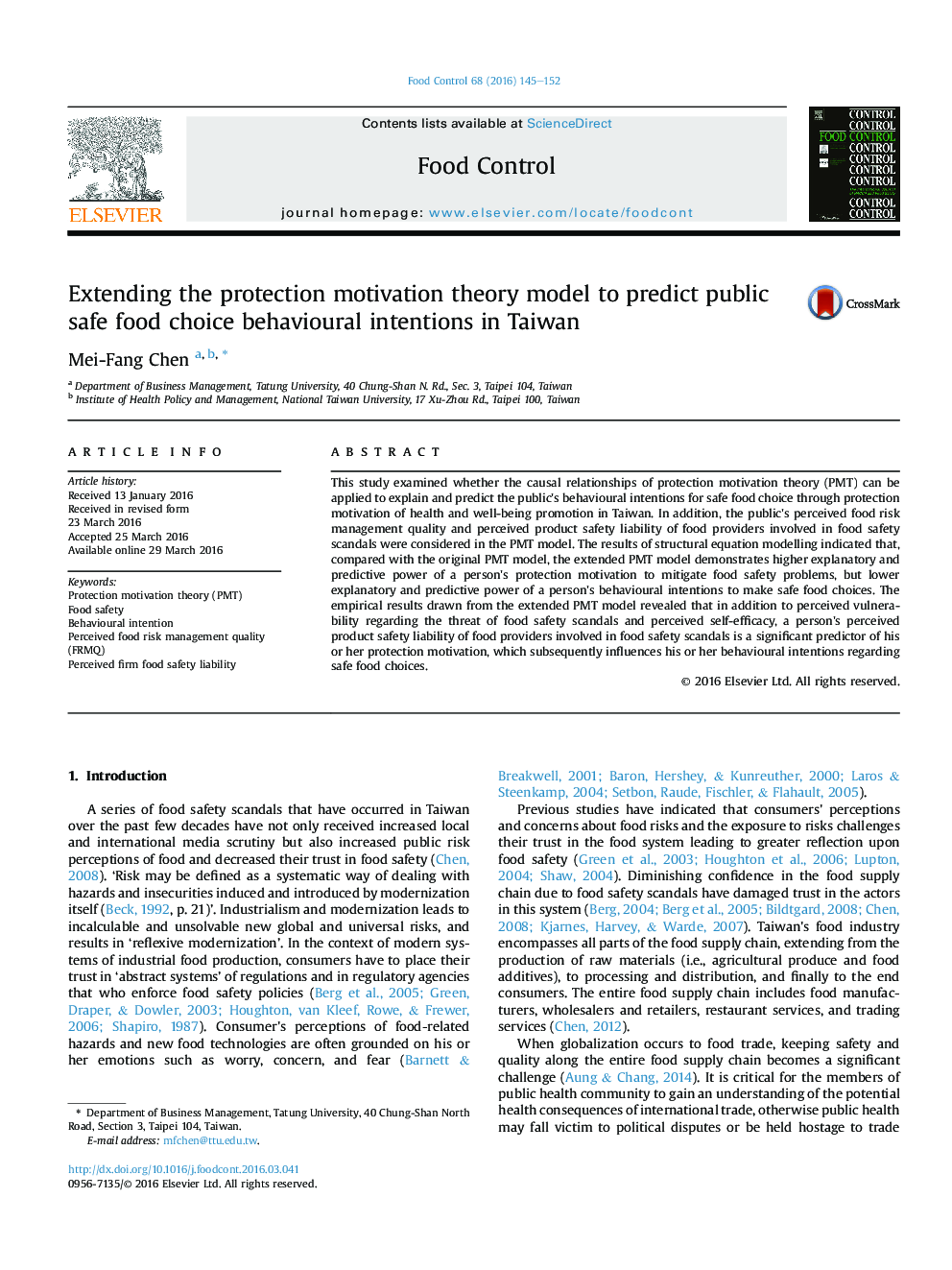| Article ID | Journal | Published Year | Pages | File Type |
|---|---|---|---|---|
| 4559035 | Food Control | 2016 | 8 Pages |
•Perceived vulnerability and self-efficacy affects protection motivation.•Perceived product safety liability also influences protection motivation.•The extended PMT model has higher predictive power of protection motivation.
This study examined whether the causal relationships of protection motivation theory (PMT) can be applied to explain and predict the public's behavioural intentions for safe food choice through protection motivation of health and well-being promotion in Taiwan. In addition, the public's perceived food risk management quality and perceived product safety liability of food providers involved in food safety scandals were considered in the PMT model. The results of structural equation modelling indicated that, compared with the original PMT model, the extended PMT model demonstrates higher explanatory and predictive power of a person's protection motivation to mitigate food safety problems, but lower explanatory and predictive power of a person's behavioural intentions to make safe food choices. The empirical results drawn from the extended PMT model revealed that in addition to perceived vulnerability regarding the threat of food safety scandals and perceived self-efficacy, a person's perceived product safety liability of food providers involved in food safety scandals is a significant predictor of his or her protection motivation, which subsequently influences his or her behavioural intentions regarding safe food choices.
